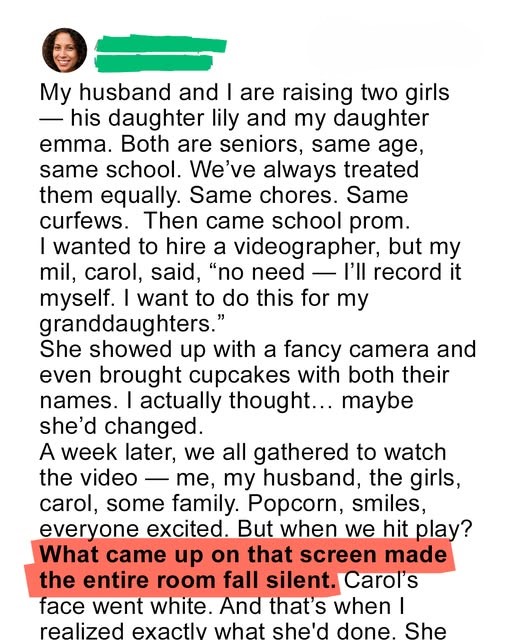When my mother-in-law, Carol, offered to film our daughters’ prom night, I took it as a hopeful sign—a gesture that perhaps she was beginning to embrace both girls equally. For years, we had worked hard to raise Emma and Lily with the same love and support, even though they weren’t sisters by blood. In our home, they were simply “our girls.”
Carol had always shown a natural warmth toward Lily, her biological granddaughter. With Emma, things were more distant—always polite, but never truly close. Still, when Carol said, “I want to film this for my granddaughters,” I felt a glimmer of hope. For the first time, she used that word in the plural. It meant something.
On prom night, Carol brought cupcakes with each girl’s name carefully piped in icing. It was a small touch, but it felt meaningful. The girls looked beautiful, full of excitement, and we all looked forward to reliving that night through Carol’s video.

Leave a Reply